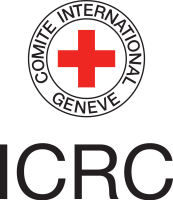About Delegation CICR Niamey
Delegation CICR Niamey: Providing Humanitarian Protection and Assistance
Delegation CICR Niamey is a branch of the International Committee of the Red Cross (ICRC) that operates in Niger. The ICRC is a global humanitarian organization that provides assistance and protection to victims of war, armed violence, and other situations of violence. The organization has been active for over 150 years, working tirelessly to alleviate human suffering in some of the world's most challenging environments.
The Delegation CICR Niamey was established in 1963 to provide support to people affected by conflict and violence in Niger. Since then, it has been working closely with local communities, authorities, and other humanitarian organizations to deliver essential services such as healthcare, water supply, sanitation facilities, food assistance, and protection services.
One of the primary objectives of Delegation CICR Niamey is to ensure respect for international humanitarian law (IHL) by all parties involved in conflicts or situations of violence. IHL sets out rules that protect civilians who are not taking part in hostilities from harm caused by military operations. It also regulates the conduct of hostilities between warring parties.
The ICRC works closely with governments worldwide to promote IHL through training programs for military personnel and advocacy campaigns aimed at raising awareness about its importance among policymakers and civil society actors.
In addition to promoting IHL compliance, Delegation CICR Niamey provides direct assistance to people affected by conflict or violence. This includes supporting health facilities with medical supplies and equipment; providing clean water sources; distributing food aid; offering psychosocial support services; facilitating family reunification activities; conducting mine risk education sessions; among others.
The organization also works towards ensuring access to justice for victims through legal aid programs aimed at helping them seek redress for violations committed against them during conflicts or violent situations.
Delegation CICR Niamey collaborates with various partners such as local NGOs (non-governmental organizations), UN agencies like UNHCR (United Nations High Commissioner for Refugees), WFP (World Food Programme), WHO (World Health Organization), FAO (Food & Agriculture Organization) etc., government institutions like Ministry Of Health & Ministry Of Interior etc., academic institutions like universities etc., media outlets like radio stations etc., religious leaders & traditional chiefs etc., community-based organizations like women's groups & youth associations etc., private sector companies operating within Niger's borders - all these partnerships help strengthen its capacity-building efforts while enhancing its outreach capabilities across different regions within Niger where it operates.
Moreover, Delegation CICR Niamey plays an important role in promoting dialogue between conflicting parties as well as advocating on behalf of vulnerable populations who are often marginalized during times when tensions run high due either natural disasters or man-made crises such as armed conflicts or political instability which can lead uprisings resulting into mass displacement causing refugees crisis which requires immediate attention from international community including ICRC delegation operating within those areas affected by these crises.
In conclusion,
Delegation CICR Niamey is an essential player when it comes down providing humanitarian protection & assistance especially during times when there are conflicts or violent situations happening around us globally affecting millions worldwide - they work tirelessly towards alleviating human suffering while promoting respect towards International Humanitarian Law across different regions where they operate within Niger's borders while collaborating with various partners including government institutions/NGOs/UN agencies/private sector companies/media outlets/community-based organizations/religious leaders/traditional chiefs/academic institutions/women's groups/youth associations/etc..

